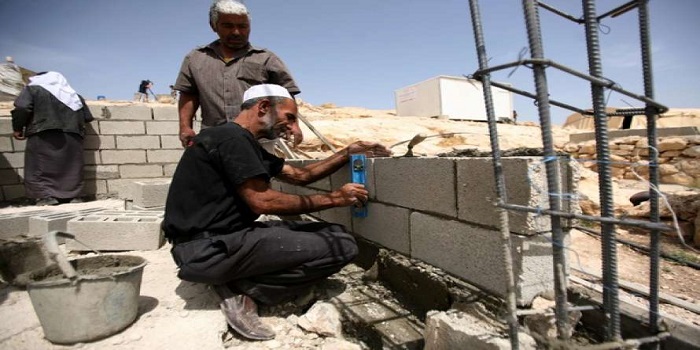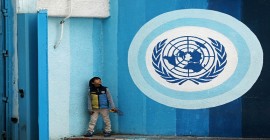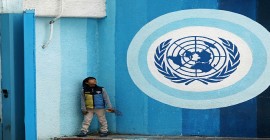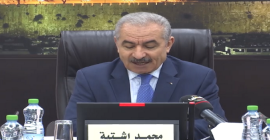UNRWA: Unemployment Rate in Gaza Strip among Highest Rates in the World

According to a report published by United Nations Relief and Works Agency for Palestine Refugees in the Near East (UNRWA), finding a job in Gaza is not an easy venture; the socio-economic conditions in the tiny enclave are extremely dire, with one of the highest unemployment rates in the world. In quarter one of 2016, the joblessness rate stood at an average at 41.2 per cent and at 62.6 per cent for women, reports the Palestinian Central Bureau of Statistics (PCBS). The situation is bleaker for youth – for many finding a job that pays bills and allows paying rent and raising a family remains a far-off dream. This is particularly true for female youth for whom PCBS recorded an average unemployment rate of 80 per cent in quarter one of 2016.
80 per cent of the population in Gaza depend on humanitarian assistance to meet their basic needs, such as education, primary health care, food, shelter or even blankets and stoves. While UNRWA currently provides humanitarian assistance to 1.3 million Palestine refugees mostly in form of health care, education or food assistance, the Agency is very much aware of the importance of employment-related interventions to provide livelihood opportunities. UNRWA creates thousands of jobs through its construction activities, its self-help shelter programme, or its cash for work Job Creation Programme (JCP).
The JCP is one of the most effective means to support communities, inject cash into the local economy, and stabilize struggling businesses. In the first four month of 2016, UNRWA created job opportunities for 8,387 beneficiaries through the JCP, injecting US$ 4.54 million into the Gaza economy.
The JCP provides not only a source of income, but also helps to restore self-respect, dignity and some form of self-reliance to thousands of Palestine refugees. The money earned through short-term job opportunities is mostly spent to cover basic needs such as medicine, fresh food, or clothes.
“I have a BA degree in business administration and this work gave me for the first time a chance to apply my skills in coordination, management, or communications. Before, I worked as cleaner or labourer to support my family”, explained 30-year old Ibrahim Nasser, a JCP beneficiary who works as supervisor of other JCPs in Nuseirat camp, central Gaza. “The money I earn through this job opportunity I spend on medical treatment for my family,” he states further.
The programme targets both skilled and unskilled workers as well as professionals. Priority is given to applicants from household who have been assessed as living below the poverty line of less than US$ 3.87 per person per day; other criteria are gender, age, skills, or location. Overall, UNRWA aims to provide 35 per cent of skilled opportunities to women and 25 per cent of all job opportunities to youth. UNRW also offers thousands of opportunities for recent graduates from Gaza’s universities through its Graduate Training Programme.
Due to a long waiting list (currently six years), opportunities for skilled positions are offered for a maximum of three months and contracts for skilled positions are capped at six months. Only one member of a given household is eligible for a job opportunity at any one point in time.
For many women, the JCP is also an opportunity to leave their house, to socialize, network and gain more self-confidence:
“When I started to leave my home for work, I became stronger and more self-confident. I deal with many different people and I enhanced my network which will hopefully help me in the future. I have learned a lot through this work opportunity, especially regarding the discrepancy between theoretical design and real implementation. In addition, I meet many people who come here because they want to rebuild their homes which were destroyed during the 2014 conflict. Through my work, I can support them; I feel I gained real experience here. All I want to continue working,” commented 28-year old Fatima Al Adeli, a skilled JCP beneficiary who works as architect in the municipality of Beit Hanoun, northern Gaza. “The money I earn I mostly spend for medicine and for clothes for my children,” she added.
JCPs are placed inside and outside UNRWA installations. Generally, the Agency identifies placements that will have a high community impact, such as economically deprived areas or those aimed at rehabilitating infrastructure and facilities.
For 2016, URWA had planned to create almost 46,000 JCP opportunities for Palestine refugees, injecting a total of US$ 54 million into the crippled local economy. Yet due to lack of funding, UNRWA is currently struggling to maintain the programme at a level where it can make a tangible impact on the local economy and community.





